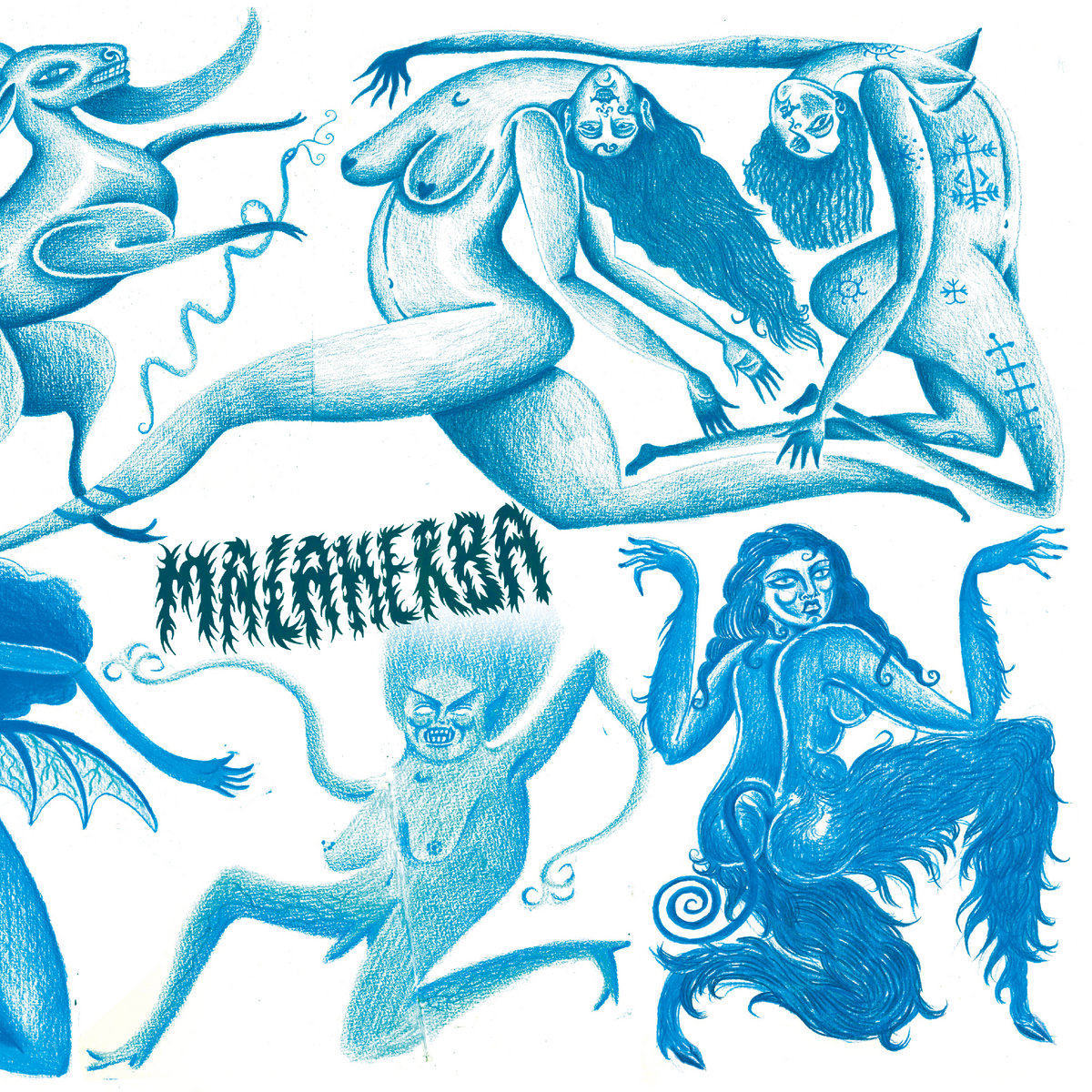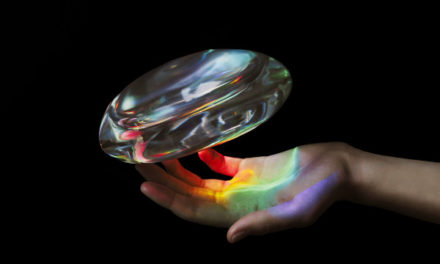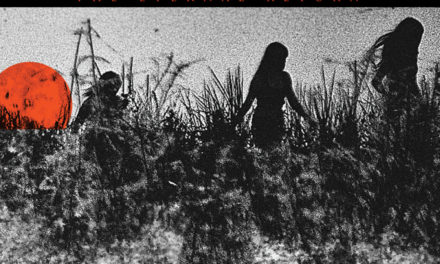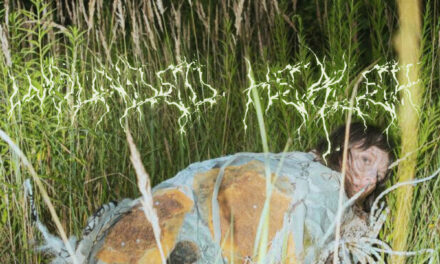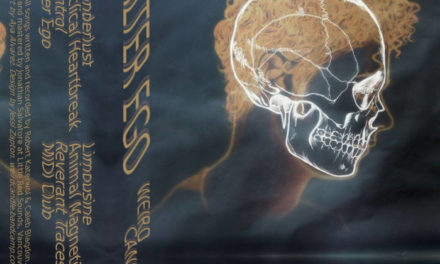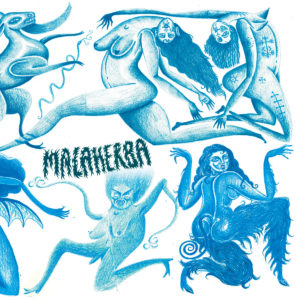
Mala Herba
Demonologia
aufnahme + wiedergabe
Tracking Zosia Hołubowska’s work as Mala Herba over the past several years has been a treat. Demos and one-offs have allowed Hołubowska to hone their style, while also steadily assembling a rep for deep, emotive darkwave that’s paid off in recent profiles on The Quietus and Bandcamp Daily. That Demonologia has landed on aufnahme + wiedergabe has likely helped draw some new ears to Hołubowska’s work, and deservedly so. But newcomers may be surprised to find that Mala Herba has far more in common with the label’s roots in darkwave and minimal synth than its recent TBM dominance. Demonologia arrives as the full realization of the project’s potential, alternately raging and beautiful, and all hinging on captivating vocals.
Demonologia brings together just about all of the sounds and moods Mala Herba has previously field tested (a pair of tracks from the demos appear here in radically reworked iterations), often uniting them in the same track. Just one track in and the trade offs between chunky synth rhythms, ethereal ambiance and expressive vocals falling somewhere between those of Anneli Drecker of Bel Canto and Kristin Hayter are established. It’s a record with plenty of rhythmic immediacy but isn’t placating the dancefloor – experimental vocal detours, and off-kilter synth funk are just as commonplace as groovy nodders like “Wszystko Marność”.
Power is also found in the contrast between the lo-fi, unapologetically grimy keys which push tracks like “Dawaj” and “Lament” along and the subtlety with which Hołubowska’s voice is recorded and mixed, wavering in the background at times before swooping to the fore, ornamented by gossamer pads. That approach gives Demonologia a varied delivery while still lending its electronic elements a raw, organic weight.
The political specifics of the lyrics may go over the heads of non-Polish speakers like yours truly, but between Hołubowska’s activism and the witchy cover art (personally, I’m reminded of Kate Beaton’s straw feminists), the focus on marginalized bodies reclaiming power is clear. Hołubowska has a strong ear for what makes rhythmic synths work, but obviously has just as much interest in keeping the thematics up front. Whether you’re approaching it as the long-awaited breakthrough for one of dark synth’s most promising artists, or as an out-of-nowhere debut, Demonologia is a work of real substance and power. Recommended.

